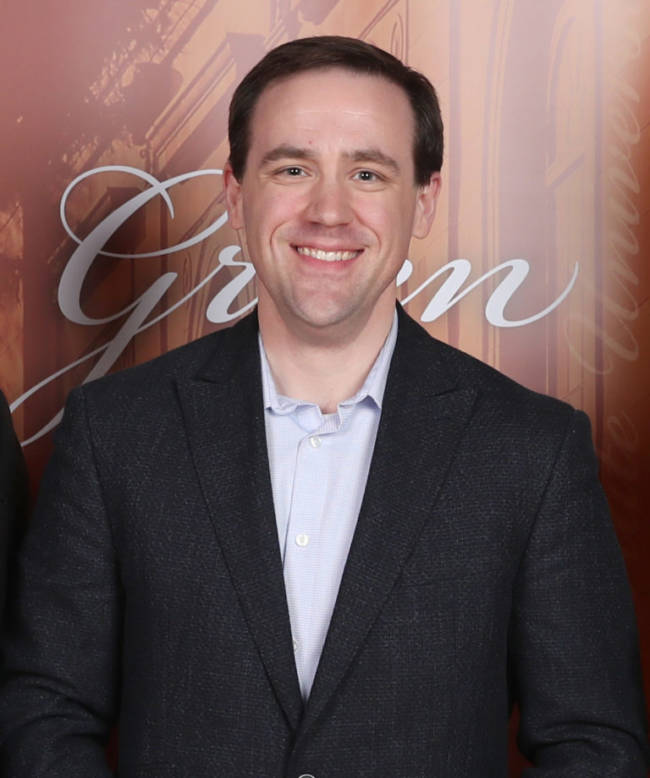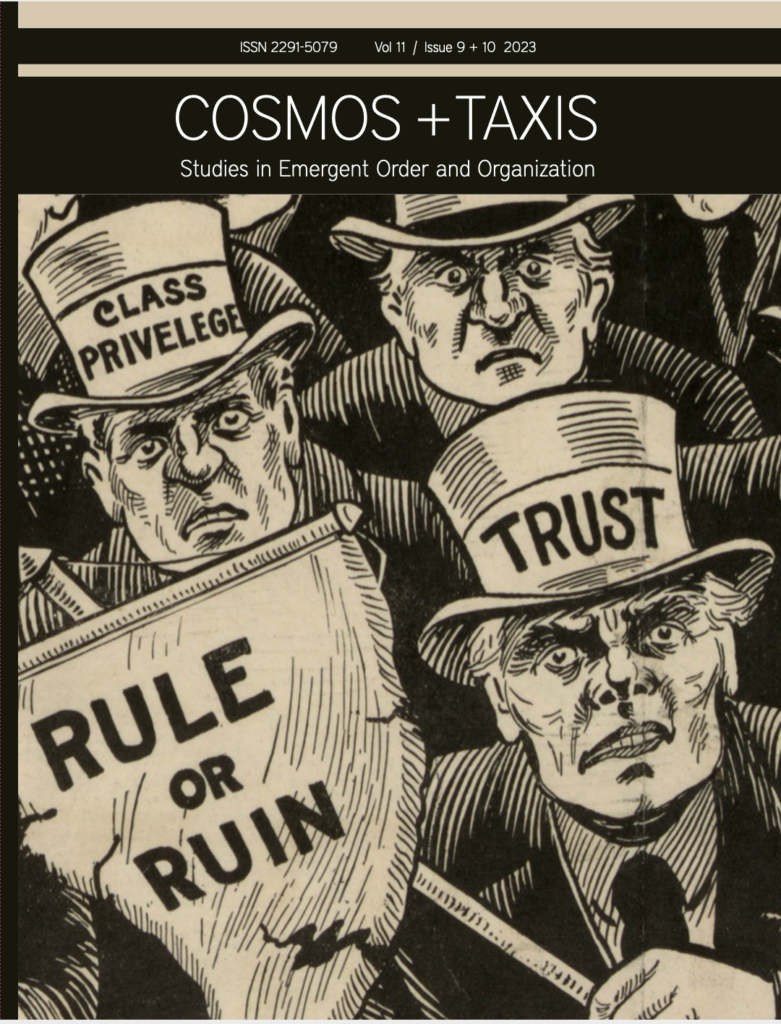Ritwik Agrawal is a Freedom Center Research Assistant and Ph.D. researcher in the UArizona Department of Philosophy. He is also affiliated with Cognitive Science and Political Economy & Moral Science. Ritwik recently completed a three-year project to create, curate, and serve as guest editor for a Symposium on Kevin Vallier’s Trust in a Polarized Age (Oxford University Press, 2020) published in Cosmos + Taxis – an open-access journal of classical liberalism.
Kevin Vallier, author of Must Politics be War? (Oxford University Press, 2019) is an Associate Professor and Director of the Philosophy, Politics, Economics, and Law (PPEL) program at Bowling Green State University. He earned his Ph.D. in Philosophy at UArizona.

According to Ritwik, Kevin “forcefully argues that liberal institutions, grounded in the tradition of public reason, remain our best bet to restore political trust and depolarize our politics.”
As guest editor, Ritwik set out to assemble a diverse group of scholars from various disciplines to expand the symposium’s perspective and enrich the dialog and discussion. Ritwik’s introductory article – A Hurrah for Liberal Democracy? – succinctly frames the issue and the articles to follow, which include a reply from Kevin Vallier that responds to the other perspectives. Some authors were familiar with Vallier’s work, and others were introduced to it during the symposium. This also provided a unique lens through which interpretation and discussion could occur.
“From the beginning of this project, my effort was to put together a group of exciting and provocative scholars who would, as a collective, be diverse along many different parameters,” Ritwik said. “I am happy that the symposiasts bring different perspectives embedded in varying social locations, academic seniority, disciplinary background, and gender.”
This process of developing the symposium created a virtual debate on the topics. Each draft article went through an anonymous review to provide authors with insightful questions and constructive comments intended to help maximize the piece’s arguments and impact. Vallier considered all the articles and thoughtfully addressed them in his reply.
The result was a broad and diverse collection of perspectives, ideas, and solutions to address a critical subject in contemporary American and international politics – how to deal with deep political, social, and cultural polarization and the corresponding deterioration in social trust – and Vallier’s belief that liberal democracy remains the best hope for the future or, as others assert, it has become a thing of the past, spawning discussion of post-liberal societies.
“I am grateful to Leslie Marsh, managing editor of Cosmos+Taxis, and the symposiasts for engaging my work. But I am especially grateful to Ritwik for his professionalism, resourcefulness, and patience in putting the symposium together. His deep read of the book, as evidenced in the introduction, was also an honor”, said Vallier.
Ritwik believes that those who read the symposium will come away informed and opinionated regarding what they believe is the right path forward. That was his goal, and it is also the Freedom Center’s mission.
“I thank Kevin Vallier and Leslie Marsh for their invitation to assemble this symposium. I thank all the contributors for agreeing to participate and for their patience and equanimity through the process of peer review and resulting revisions. My gratitude to all reviewers for helping to improve the quality of discussion in this symposium,” Ritwik says.
He adds, “I enjoy being able to contribute to the Freedom Center’s efforts to have informed and broad-ranging conversations on topics that deeply affect our world. I particularly appreciate the Center’s sustained efforts at viewpoint diversity, featuring leading scholars with highly differing perspectives, such as Noam Chomsky, Cornel West, Robert George, and Dierdre McCloskey, to name only a few, in Center-organized discussions and publications in recent years”.
Contributors include:
- Christie Hartley (Georgia State University) and Lori Watson (Washington University in St. Louis) – The Ties that Bind: Associations and the State.
- Otto Lehto (King’s College London) – Institutional Trust, the Open Society, and the Welfare State
- Ryan Patrick Hanley (Boston College) – Trust and the Right of Association
- Alex Motchoulski (University of Virginia) – Fault Lines and Fractures in Political Communities
- William A. Edmundson (Georgia State University) – Two-And-A-Half Cheers for Socialism
- Eric Rowse (Independent Scholar) – Can We Trust Neoliberalism
- Kevin Vallier (Bowling Green State University) – Public Reason Liberalism’s Classical Tilt Revisited
Now that we’ve got your attention, access and read the symposium: C+T 11:9+10 – COSMOS + TAXIS (cosmosandtaxis.org)


